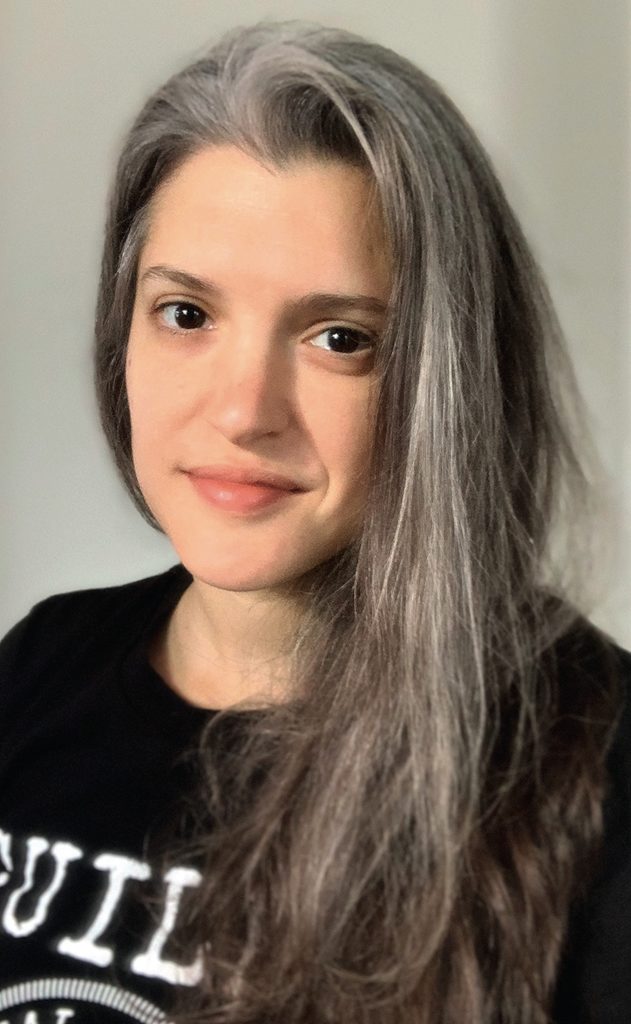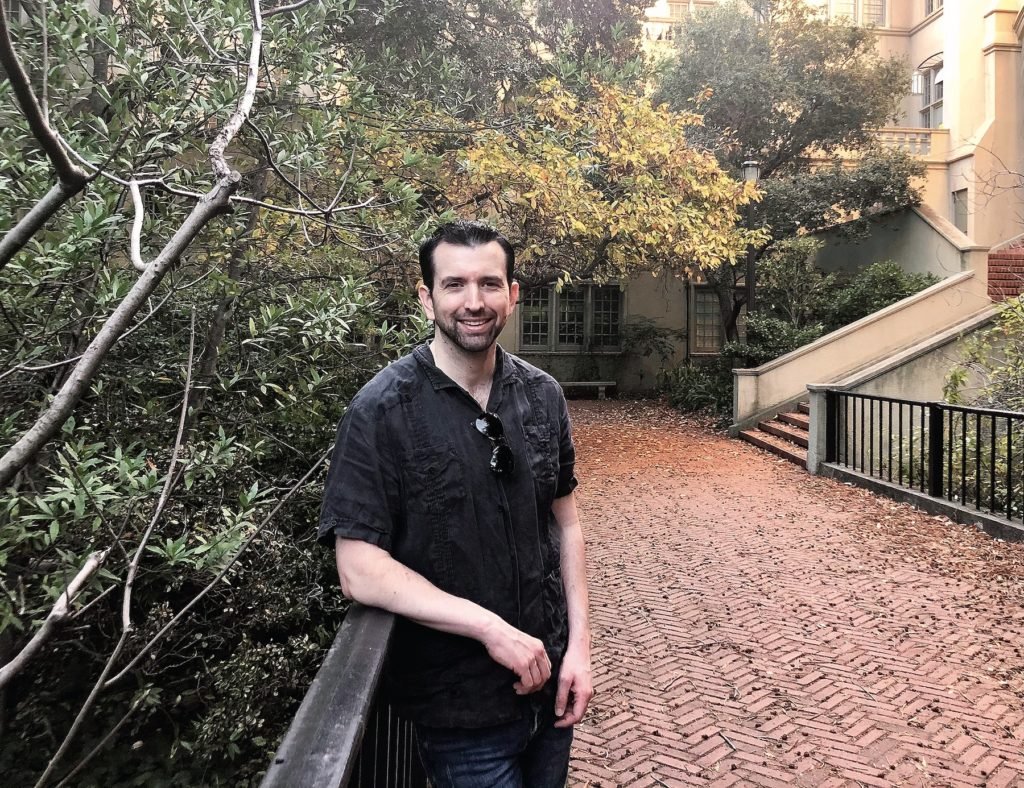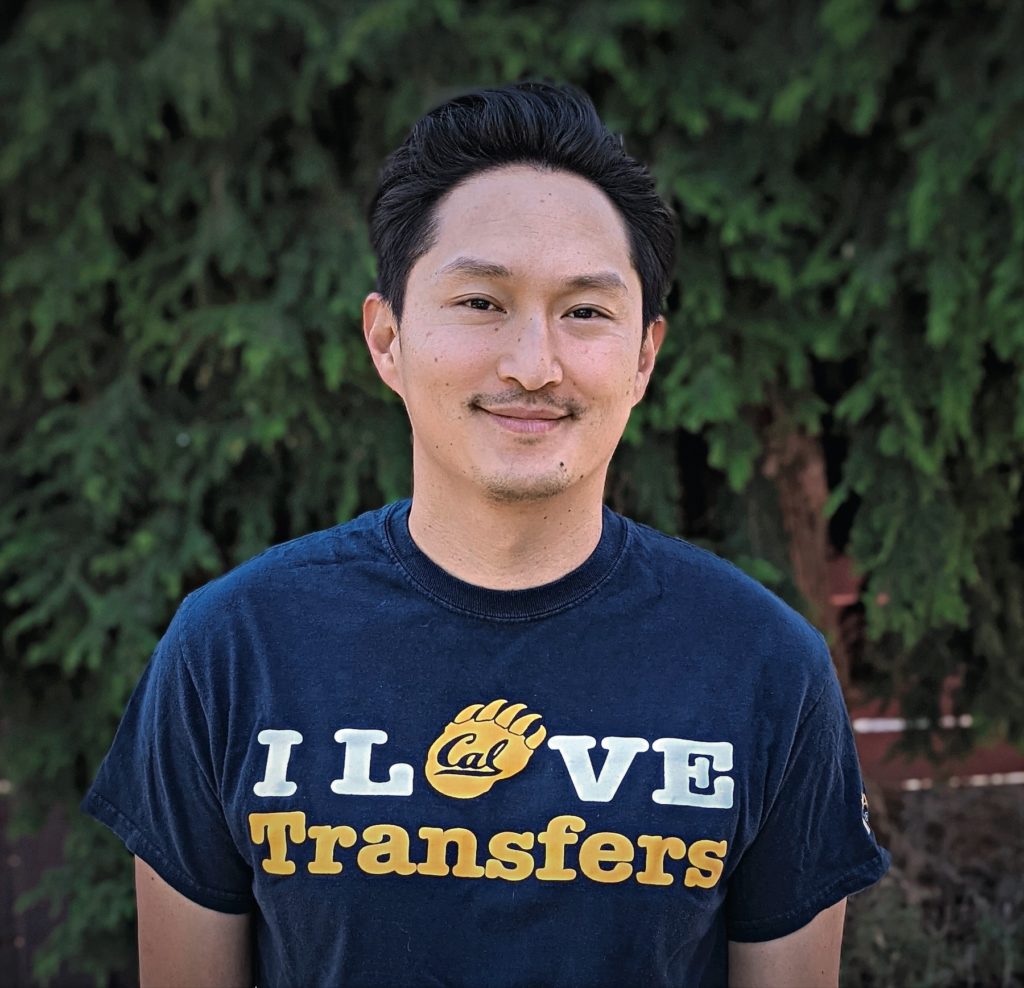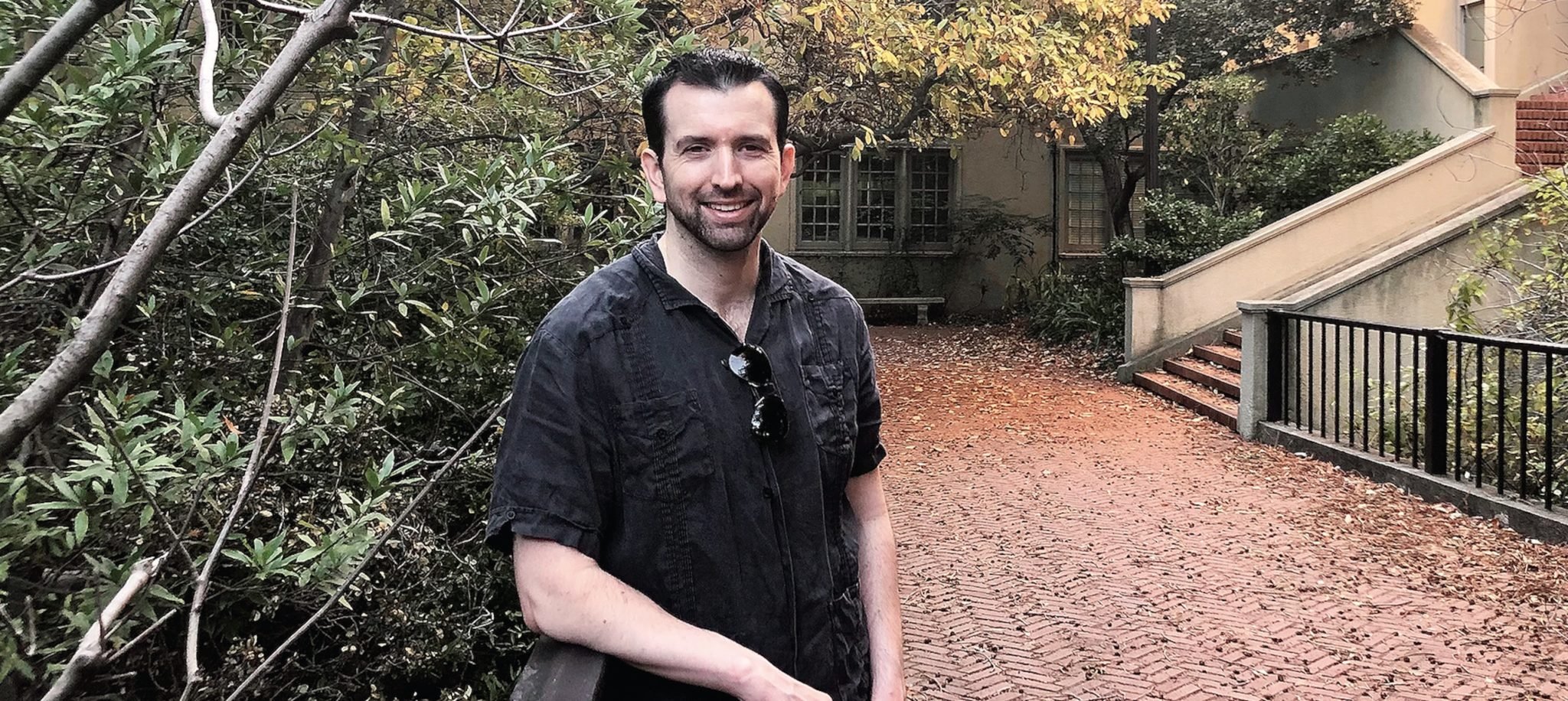If you’ve ever wondered who watches the watchmen, the answer is the National Lawyers Guild (NLG). And, unsurprisingly, this hasn’t earned them many friends among the watchmen. In 1950, the House Un-American Activities Committee labeled it “a bulwark of the Communist Party.” In more recent years, its lawyers have clashed with police during protests.

According to Katie Adamides, J.D. ’14, who just began a two-year term as the Guild’s interim executive director, the organization has been “repeatedly targeted with government repression since it was founded in 1937, but what we really are is a human rights organization that values people and the planet over property.
“We have thousands of members: legal workers, law students, lawyers, and jailhouse lawyers who organize themselves into chapters, national committees, projects, and other bodies with lots of different goals. The most visible is our Mass Defense Program. If you’ve ever seen someone in a neon green hat watching the police at a demonstration, you’ve seen NLG [Legal Observers] in action.”
Katie’s path began in 2011, when she was a student at Berkeley Law during the Occupy Cal demonstrations. “I was sitting in the law library when I saw the video of the brutal police tactics down the hill on campus. I knew that if I really came to law school to do public interest work, I needed to go down the hill. What was going on there was more important than anything going on in the classroom. That was when I became a Legal Observer with NLG.”
After passing the bar, she began providing nonprofit legal services in the Navajo Nation. She lived in rural northern Arizona, north of the dinosaur tracks outside Tuba City. “I was practicing law out of the small bedroom of a residential trailer in a dirt parking lot. It was hard to recruit attorneys to serve out there, so I decided this is where I should go.”
She returned to her hometown, Rochester, New York, at the end of 2015. “That summer [in 2016], we had a mass demonstration for Black Lives Matter. Local law enforcement coordinated across agencies to make 74 arrests in one night. For comparison, Atlanta, a much bigger city than Rochester, had much larger protests and made fewer than ten arrests. I looked around, and as a member of the local legal community, we had failed. We failed to organize ourselves to provide coordinated movement support. That’s when I knew we needed a chapter here. I started reaching out to members of the legal community here in Rochester and the NLG national office to begin the process of forming a chapter. In 2017, we officially founded the chapter.”
They trained dozens of Legal Observers, established a hotline, raised thousands of dollars, provided countless “know-your-rights” training sessions, served as an organizational plaintiff in two federal lawsuits, and coordinated free legal representation for anyone arrested in a local demonstration. In 2020, the surge in demand for local legal support was unprecedented for the chapter.
“After George Floyd’s murder, we learned that Rochester’s local police killed Daniel Prude using similar tactics. Daily actions followed, as did daily requests for Legal Observers. Police arrested some of our Legal Observers at a summer action, including me, so we were dealing with our own criminal cases while we were trying to meet the surge in demand for legal support. Our chapter rallied to meet the need.”
One day, a colleague saw a posting for the interim executive director position at the national organization and told her to apply. She did and got the job.
So, what’s first on her agenda?
“I’m here to support the powerful work our members collectively lead across NLG. Bay Area folks should check out the innovative work in the San Francisco Bay Area chapter, which has a ton of opportunities to get involved. They’re even working to establish a clinic at Berkeley Law to expand support to jailhouse lawyers. My goal is to do whatever I can to develop and retain a strong member base that provides effective legal support to movements.”
It’s a daunting prospect, but when has that ever stopped her?

In 2007, during his senior year at Cal, Benito Delgado-Olson ‘07 and some of his friends—Sean Carr ’07, Steve Frances ’08, Kathleen Manis-Johnson ’08, Jenny Shu ’08, and Peter Hsiue ’10—hit upon an idea so simple, it makes you wonder why nobody ever thought about it before.
“It began when we wanted to distribute school supplies to low-income students,” says Benito. “And we realized that if we pooled our resources to buy directly from manufacturers and serve the needs of people across a large region, economies of scale would allow us to help many more students.”
Thus was born the K to College program. “I had to take a leap of faith and sell some of my assets to raise startup funds, including my Nissan Maxima.”
They started small, with a pilot project handing out 300 kits at the South Berkeley YMCA. A year later, 500 volunteers were packing Pauley Ballroom to assemble kits for 10,000 low-income kids. Their target area expanded, too, to tens of thousands of children throughout the Bay Area.
They worked like dogs for more than a year to get grants, but the real breakthrough came in 2009, when Congress passed the American Recovery and Reinvestment Act. “Two months later, we had a warehouse in Martinez with 16,000 school supply kits.”
As of this writing, K to College—which was renamed SupplyBank.Org in 2017—has distributed more than $25 million worth of basic necessities, including school and hygiene supplies, diapers, and PPE, to hundreds of thousands of children and families in all counties in the state.
“We work closely with local organizations that are deeply rooted and trusted in their community. The benefits are that people already go there, there’s no line to wait in, it reinforces relationships between employees of these organizations and the people they serve, and it can be the anchor for a very important rapid response program for emergency supplies in the event of a disaster.”
In 2020, SupplyBank faced a new challenge when the pandemic struck. “It changed the nature of our work dramatically. We very quickly leveraged our relationships with hundreds of agencies throughout the state to distribute hundreds of millions of items: PPE, diapers, wipes, 12,000 infrared thermometers—all kinds of things that were needed at a time when price gouging and scarcity were at an all-time high. We used our relationships with manufacturers and community-based organizations to connect the dots for people who were essential workers or watching the kids of essential personnel to have these materials when they needed them most.”
Over the last five years, the fastest-growing project has been the Diaper Kit program. “Diapers cost $100 per month if you are on cash aid—that can be 14 percent of your income—and approximately 40,000 hospital visits per year are related to diaper need,” he explains. “Some rashes are so severe from leaving diapers on longer that they cause bleeding or urinary tract infections. This program provides diapers for pennies on the dollar compared to what it would cost these families in the store. During the pandemic, the program expanded to all 58 counties in California, and we hope to keep it going because the need is worse than before the pandemic started.”
Whew! It all sounds like a lot of work. Is it worth it?
“Of course. People are people. You either have your needs met or you don’t, and we all deserve a basic level of health, safety, and comfort to live our lives.”

If you have ever wondered what it’s like to be a transfer student at Cal, Andrew Henry ’17 can set the record straight: “It’s not easy.”
“You have only two years instead of four to learn the system, get acclimated to the academic rigor, navigate the coursework, make friends, and build your community.” And then there’s impostor syndrome, the feeling that you don’t belong.
Andrew would know, having transferred to Cal himself in 2015 after attending Cerritos College in Norwalk.
“I had major impostor syndrome. I thought that at any point, Berkeley was going to rescind my acceptance. I didn’t think I was going to get in in the first place. I was also an older student in my early thirties. At the time, I thought I was the oldest student on campus.
“It took me the whole first semester to get acclimated, but once I did, I was able to make connections with my professors and build a community, both within my major and at the Transfer Student Center located in the César E. Chávez Student Center. Through that, I was able to shed my impostor syndrome and tap into resources, both academically and personally, and I was able to thrive during my time at Cal. I graduated with a 3.6.”
Fortunately, Cal is trying to make transfers feel more welcome, hiring a cadre of counselors to show them the ropes. And one of them is—surprise!—Andrew Henry.
“A lot of my job is normalizing the system for students. I say, ‘Sure, you haven’t got a lot of time, but it’s all still possible for you.’ I help them understand that their aspirations at Cal are attainable, whether it’s research opportunities, clubs or organizations, internships—the whole lot, from academics to student life and everything in between.
“I also run a mentorship program called Starting Point, pairing prospective transfers with current Cal students—all transfers themselves—who have experience with what they’re going through and trying to attain. In addition, I teach a course that helps first-semester transfer students acclimate to their academic journeys at Cal.
“We also work closely with the Basic Needs Center, which has everything from emergency housing to a food pantry that can help supplement students’ groceries and connect students with a supplemental nutrition assistance program called CalFresh.”
During his final semester, a full-time position as an academic counselor opened up. He applied for it.
“I was lucky enough to be selected. Now I want to support other transfers’ journeys the way I was supported. My advice to transfers is to not be afraid to put yourself out there—in your classes, in applying to programs, and in searching for support. There are lots of opportunities and campus resources that want to support students’ success; you just gotta go find them.”
Reach Martin Snapp at catman442@comcast.net.



















